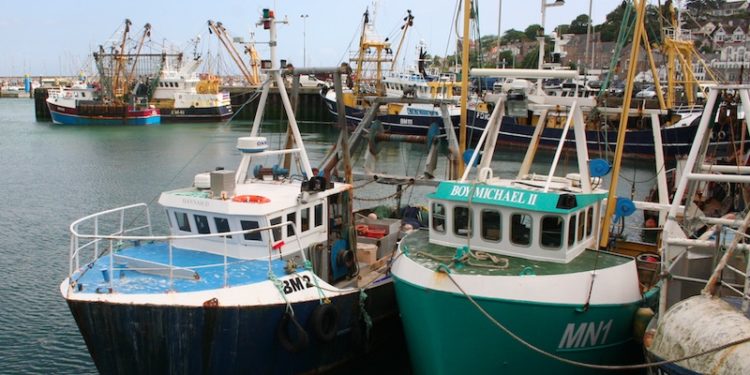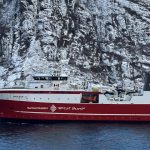The NFFO Executive Committee, which met recently in York, has reaffirmed its objectives as the UK leaves the EU against the background of the European Commission’s position that NFFO chief executive Barrie Deas described as aiming at keeping a post-Brexit UK tied into the CFP for the foreseeable future, while pressing for a status quo on quota shares and access arrangements to be maintained.
He said that for the most part, the UK would become a rule-taker, rather than a participant in the rule-making process and most certainly the UK’s status would certainly not reflect the proportion of fisheries resources in its waters.
‘The Commission intends to use trade as the lever to secure these objectives,’ he said, commenting that the Commission’s position comes as no surprise.
‘This is an opening negotiating position and it’s to be expected that an opening statement in negotiations present unachievable, maximalist, positions,’ he added and warned that the UK government would face electoral punishment if it were to agree to arrangements in the form of a CFP-lite.
‘That would be denounced by the fishing industry and its allies as an unacceptable betrayal – because it would be an unacceptable betrayal,’ he said.
‘The principles of equal access and relative stability have worked very well for the EU fleets – and to the systematic disadvantage of the UK for over forty years – by comparison with the deal that would have been available to us as an independent coastal state. It is no surprise that the EU will try to cling on to this state of affairs for as long as possible,’ he said and added that the Commission’s position brings the EU into direct conflict with the aspirations of the UK fishing industry, which sees the UK’s new legal status after March 2019 as a stepping stone to the normal advantages that accompany the status of an independent coastal state.
‘As we enter this next crucial phase in the withdrawal negotiations, there is much speculation on what the implementation/transition phase will mean and, as is usual with these kind of talks, postures are being struck in advance. Our Executive Committee thought it important to restate our Brexit objectives and to make clear that it is against these that any deal will be judged by the UK fishing industry,’ Barrie Deas said outlining a series of objectives for the UK.
‘The UK should, from the point of departure from the EU, have the status of an independent coastal state, with jurisdiction over the fisheries within its Exclusive Economic Zone; along with an independent seat at the table when decisions on fisheries on shared stocks are made,’ he stated.
‘The UK’s quotas of shared stocks should broadly reflect the resources that are located within UK waters. A twelve mile exclusive limit should apply to safeguard to provide adequate protection for our coastal fisheries. Access for non-UK vessels to fish within the UK EEZ should be subject to negotiation and should bring balancing benefits to the UK. There should be scope and flexibility for the UK to shape and tailor its domestic fisheries management arrangements to fit with its own fleets, and the UK should seek as unimpeded access to EU markets as possible’
He commented that the Commission’s intention is to block any shift in this direction by insisting that access to the EU market, on anything other than WTO rules, would not be available, unless the UK sacrifices its fishing industry, which would continue to be subject to the whole body of EU rules past, present and future.
‘Clearly, the Commission’s plan for the future relationship between the EU and UK on fisheries is to try to keep the UK tied into an asymmetric, essentially exploitative relationship, with the EU as the dominant party, dictating the all the terms. This approach would not be acceptable in West Africa. Why would it be acceptable here?’ he asked.









